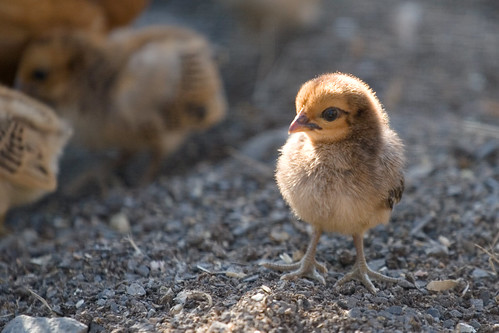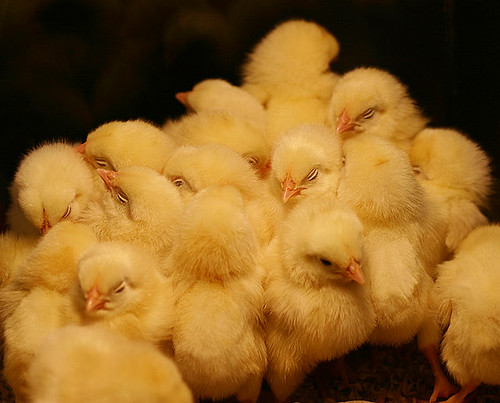The Year of the Rooster? Billions of them won’t last a day
01 February 2017
As the world welcomes in the lunar year of the rooster, now is a good time to reflect on how we treat male chicks, billions of which are simply born to die.
In Europe, America and Asia eggs are cheap and plentiful. But they have a hidden cost. For this industry, only female chicks have value as they lay the eggs which will eventually be sold around the world.
So what happens to the males?
Their lives are short, very short.
As soon as the chicks hatch they are sorted by hand and placed on different conveyor belts. The females are transported to a lifetime of laying eggs for human consumption, the males’ journey is tragically much more brief.
Their conveyor belt leads either to a giant grinder – known as a “macerator” in the industry – which slices and grinds the baby chickens to death, or a gas chamber in which a chick can take up to two minutes to succumb.
They have no value to the industry which bred them so they are destroyed.
In the EU alone, it is estimated that 330 million male chicks are slaughtered in this way annually. Add the massive industrialised markets of Asia and America and you have billions of lives deemed unworthy and instantly destroyed. Even being “free range” won’t save them.

Animals Asia’s Animal Welfare Director Dave Neale said:
“In these male chick’s short lives there will be a number of welfare issues, from rough handling during sorting to the suffering caused by being sliced, ground or gassed to death. To the industry they are worthless in terms of society’s needs. These billion male chicks are the by-product of our societal wish to have greater quantities of cheap eggs.
“Perhaps as we ring in the Year of the Rooster, we should consider the ethical basis for the way we treat this sentient animal. Sadly, this debate rarely takes place within mainstream society where the rights of the individual animal are ignored in favour of our desires as consumers.
“If we believe that the life of each chick is worthy of our consideration then we can make a choice not to play any part in the thoughtless termination of billions of young lives every single year.
“But the key to being able to make that decision is the knowledge that an unthinkable number of animals are being treated this way in the first place. And if that knowledge suggests there is no such thing as truly cruelty free eggs – then we have to ask ourselves – individually and as a species – just how much we really need to eat eggs at all.”
And that’s a question we could and should be applying to all animal-based food.
BACK






 Healing the hidden wounds
Healing the hidden wounds
 Early summer awakening at the China Bear Rescue Centre
Early summer awakening at the China Bear Rescue Centre
 5 reasons the dog meat trade must end
5 reasons the dog meat trade must end